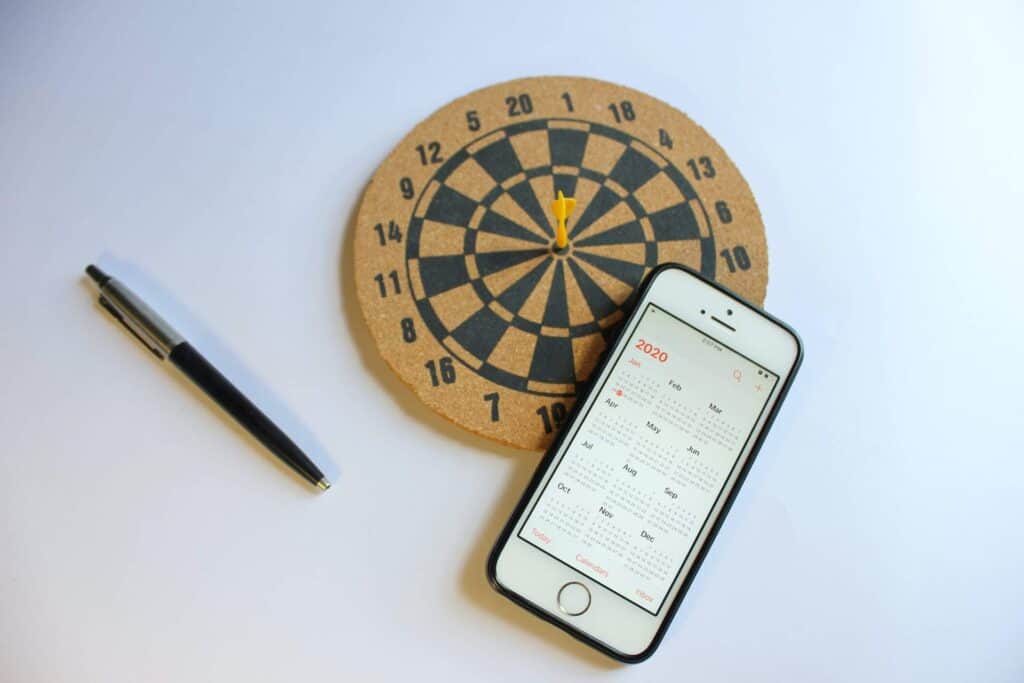What are goals? Goals are where we want ourselves to be in in the future. It gives us a sense of purpose and direction. Achieving the goals we set up for ourselves is like take steps that lead to our definitions of success.
Table of Contents
In our busy world, it’s easy to get lost. It’s easy to get pulled into many directions by all the influences around us. Sure, it can be fun to go about and wander around. But at some point, you’ll realize that wandering too much will get you nowhere and that is not a fun place to be in.
If you’ve come to the point where you’ve had enough and actually to get somewhere, having goals will make that happen. Let’s look into what goals are and why they are important.
What Are Goals?
Goals are essentially the desired outcomes or achievements that you can aim to accomplish within a specific timeframe. Having goals can provide you with direction, motivation, and a sense of purpose. They can be short-term or long-term, and they are often set based on personal aspirations, professional ambitions, or organizational objectives.
Think of goals as the targets you want to reach, whether they involve personal development, career advancement, health and fitness, or any other aspect of life. They give you a roadmap to follow, helping you stay focused and measure your progress along the way.
Setting clear and realistic goals is a crucial step in achieving success, as it provides a framework for planning, decision-making, and taking action. Whether big or small, goals will help guide your efforts toward meaningful accomplishments.
Why Are Goals Important?
We know goals can give a sense of purpose and direction. But other than being a signpost, what else does having goals going for us? A lot. Here are some of them:
Having Goals Make Us Better Decisions-Makers
Goals provide a framework for decision-making and prioritization. In a world brimming with choices and distractions, having well-defined goals helps you filter through the noise and focus on what truly matters. They allow us to evaluate opportunities and challenges based on their alignment with our objectives.
This strategic approach to decision-making not only saves time and energy but also ensures that our efforts are directed toward endeavors that contribute to our overarching vision.
Goals Help Us Grow And Develop
Goals are also pivotal in personal growth and development. By setting ambitious yet achievable targets, we push ourselves beyond our comfort zones, fostering resilience and adaptability.
The pursuit of goals often involves learning new skills, overcoming obstacles, and embracing challenges, all of which contribute to our continuous evolution as individuals. The journey towards our goals becomes a crucible for self-discovery, allowing us to uncover untapped potential and strengths.
We Can Track Progress With Goals
Lastly, goals provide a measurable framework for progress. The ability to track our advancements toward specific objectives can give us a sense of achievement and motivation. With a journal, you can even see this progress better and push you even further.
This sense of progress not only boosts our confidence but also helps us stay committed to keep moving forward, even when faced with setbacks. It transforms the abstract concept of personal or professional success into concrete milestones, making the journey more manageable and rewarding.
You Don’t Need To Stick With One Goal
One reason I used to avoid setting goals is because it meant giving up my freedom to do whatever I want. Fortunately I realized that’s not true at all. It’s all about having balance.
Have no goals and you’ll get lost. Restrict yourself with one goal and you’ll get suffocated. In the first place, we can only do so much. By having goals, we can still do whatever we setup ourselves towards and actually get somewhere.
We’ve mentioned short-term and long-term goal, but we can go more specific than that. Here are some common goals you can consider and strive for:
1. Personal Development Goals
Want to become a better version of yourself? Set some personal development goals.
Personal development goals are the intentional and ongoing process of self-improvement. This includes working on our skills, attitudes, behaviors, and knowledge. By accommodating your desires for growth, you are opening yourself up to more and better opportunities for yourself.
They can also offer you a roadmap for growth, enhance self-awareness, build resilience, boost confidence, and foster a proactive approach to life. Embracing personal development goals is an investment in one’s own well-being and contributes to a more fulfilling and enriched life journey.
2. Educational and Career Goals
Whether it’s completing a degree, gaining expertise in a particular subject, or acquiring new skills, educational goals serve as milestones that contribute to intellectual enrichment. They also foster a lifelong commitment to learning, encouraging individuals to stay curious, adaptable, and engaged with the ever-evolving world of knowledge.
Career goals provide motivation and focus, helping you navigate the complexities of their chosen professions. Whether aiming for promotions, leadership roles, or a fulfilling work-life balance, setting and achieving career goals contribute to a sense of accomplishment and satisfaction in one’s professional life.
By setting and pursuing these goals, you actively shape your educational and professional trajectories, leading to personal satisfaction, growth, and success.
3. Financial Goals
Financial goals can provide you with a sense of purpose and direction in managing your money. They serve as a roadmap, guiding you to prioritize your spending, saving, and investing activities based on your short-term and long-term aspirations.
Whether it’s buying a home, funding education, or achieving financial independence, setting clear financial goals helps you make informed and intentional decisions about your financial resources.
Empower yourself to make informed decisions, cultivate positive financial habits, and build a foundation for long-term financial well-being. By setting and achieving financial goals, you take control of your financial destinies, fostering a sense of financial confidence and security in your life.
4. Health and Fitness Goals
By setting specific objectives related to exercise, nutrition, and mental health, you’re actively contributing to your physical and mental wellness. These goals serve as a roadmap for adopting healthier habits, such as regular exercise, balanced nutrition, and adequate sleep, which collectively enhance the quality of life and contribute to long-term health.
Furthermore, health and fitness goals positively impact your mental and emotional well-being. Exercise is known to release endorphins, the “feel-good” hormones, which can alleviate stress, anxiety, and depression. By incorporating mental health into health and fitness goals, you prioritize your holistic well-being, recognizing the interconnectedness of physical and mental health.
5. Relationship Goals
These goals can include various aspects of a relationship, including communication, trust-building, shared experiences, and mutual growth. Relationship goals are crucial for nurturing strong, resilient connections, as they provide a roadmap for partners to navigate challenges, foster intimacy, and build a future together.
These goals are essential for building and maintaining healthy, fulfilling connections. They enhance communication, reinforce trust, prevent complacency, and create shared experiences. By setting and pursuing relationship goals, you and your loved ones can invest in the growth and longevity of your relationships, fostering a deeper, more meaningful connection with each other.
Time To Take Action!
Now you know what goals are and why having them is important. Let your goals guide on where you want to go and enjoy the journey along the way.
What’s the next step? Taking action! Your goals are not going to achieve themselves on their own. You need to plan and take the necessary steps to reach success.


